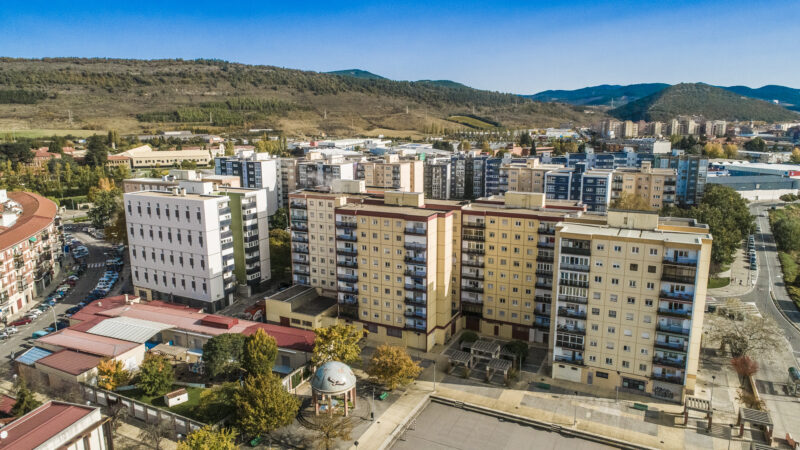Improving the thermal insulation in the façade and roofs is just one aspect of the project. Another important task has been helping residents to understand how insulation works and to encourage energy efficient behaviour at home, thus reducing energy waste and costs.
In fact, involving the residents throughout the project has been vital to its success. Over 800 meetings were held within the community, resolving more than 1,900 questions from concerned or curious locals. This level of interaction with those directly impacted by the changes resulted in high levels of acceptance and enthusiasm for the project.
The project has turned these buildings – once some of Spain’s least energy efficient – into some of Spain’s best energy performers. Started in 2015, the Efidistrict project is now in its third phase with renovation planned or underway on more than 1,000 additional homes in social housing buildings in other neighbourhoods around Pamplona-Iruna.
The success of Efidistrict has been recognised inside and outside of Spain as a reference case for other municipalities seeking to combine large scale renovation with urban regeneration. The results are tangible, and the approach – including close cooperation with the community to ensure open communication during the renovation – has led to minimal disruption to the lives of residents.











